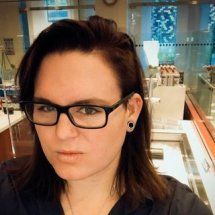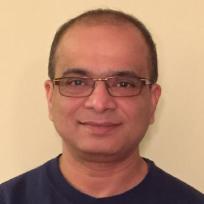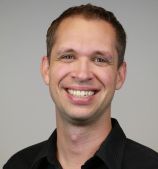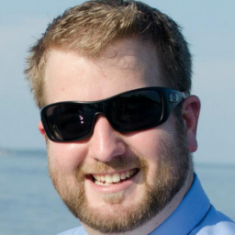In this episode of The Goat Farm we are in wonderful Copenhagen, Denmark for Kubecon/CloudNativeCon EU 2018 where we sat down with three guests to talk about organizational inertia and overcoming that inertia.
First we talk to Simon Wardley. Simon has long been a prominent figure in the world of Cloud computing, and spends much of his time talking about mapping. We chat with Simon about what mapping is, and he introduces concepts regarding forces at play when technology adoption evolves.
Next we talk to Kris Nova of Heptio. Kris is a long time contributor to projects such as Kubernetes and Go, and has recently been researching moving stateful applications to Cloud Native platforms. Kris gives us some good insights into the adoption of technology in enterprises.
Finally we catch up with Sebastien Goasguen. Over the years, Sebastien has been involved in many open source projects, and currently maintains Kubeless, an open source project that enables FaaS on top of Kubernetes. Sebastien touches on why platforms such as Kubernetes are so powerful for overcoming inertia, and how they help increase organizational velocity.
Music: “Marty, Ladies and Gentlemen!” by Doctor Turtle
Show notes:
- Crossing the River by Feeling the Stones – Simon Wardley
- Wardley Maps
- Cloud Native Infrastructure – Kris Nova & Justin Garrison
- Migrating Monolithic Applications – Heptio Community Call
- Securing Serverless Functions via Kubernetes Objects – Sebastien Goasguen

Simon Wardley – LinkedIn – Twitter
Simon Wardley is a Researcher for Leading Edge Forum, a global research and thought leadership programme dedicated to helping large organizations reimagine their organizations and leadership for a technology-driven future. Simon is also lead practitioner for LEFs Wardley Maps Advisory service which helps client anticipate market and ecosystem developments so they know where to go and why.
Simon’s focus is on strategic play both at an industrial and global level. He is the author of multiple reports including Clash of the Titans: Can China Dethrone Silicon Valley?, a pioneer in the use of topographical intelligence within business, a former executive and an advisory board member for several successful start-ups. He has twice been voted as one of the UK’s top 50 most influential people in technology. Simon has spent the last 20 years defining future strategies for companies in the FMCG, Retail and Technology industries. He is a passionate advocate in the fields of strategic play, organizational structure, open source and leadership and is a regular presenter at conferences worldwide.

Kris Nova – LinkedIn – Twitter
Kris Nova is a Senior Developer Advocate for Heptio. She is a Kubernetes maintainer and contributor. She wrote the book on cloud native infrastructure. She spends her free time climbing mountains.

Sebastien Goasguen – LinkedIn – Twitter
Seb has been working on Kubernetes since June 2014, he is the author/co-author of the O’Reilly Docker cookbook and the Kubernetes cookbook. With many years of experience teaching computer science he stills enjoys teaching people Kubernetes and getting them off the ground and on their container journey. Currently he works at Bitnami where he oversees all things Kubernetes, he prototyped Kubeless, the Kubernetes native serverless framework and other community tools like kompose and Cabin. In 2008 he was selected for the first round of Astronaut selection by ESA but sadly is still stuck on earth.

 Joe Beda –
Joe Beda – 
 Tom McLaughlin –
Tom McLaughlin –  Adam Auerbach –
Adam Auerbach –  Tapabrata Pal (Topo) –
Tapabrata Pal (Topo) – 
 Jon Klein –
Jon Klein – 


 last 18 years. While still attending the University of Washington, where I was studying Computer Science, I started doing web development building web pages and light weight ASP applications. right after college I joined Microsoft where I stayed for 16 years. While there I was exposed to many different Software Engineering Methodologies, primarily agile, and worked on a number of Products and Services from Web to Desktop and built a broad base of experience across stacks. In 2005, I began my evolution with agile, receiving my certification as a Scrum Master and went on to run and facilitate a number of agile Teams. My passions are in Services and Distributed Systems as well as Mathematics.
last 18 years. While still attending the University of Washington, where I was studying Computer Science, I started doing web development building web pages and light weight ASP applications. right after college I joined Microsoft where I stayed for 16 years. While there I was exposed to many different Software Engineering Methodologies, primarily agile, and worked on a number of Products and Services from Web to Desktop and built a broad base of experience across stacks. In 2005, I began my evolution with agile, receiving my certification as a Scrum Master and went on to run and facilitate a number of agile Teams. My passions are in Services and Distributed Systems as well as Mathematics.